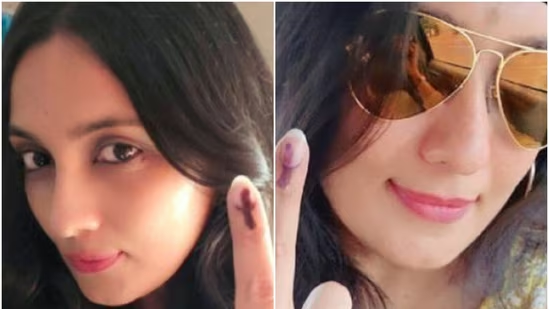A new twist has emerged in India’s ongoing voter fraud controversy, as social media posts by an Indian woman — following a similar viral incident involving a Brazilian model’s photo — have ignited fresh political debate ahead of the Bihar Assembly elections.
The woman, identified by her X (formerly Twitter) handle as Urrmi, found herself at the center of the storm after two of her posts resurfaced showing her with an inked finger — one from Pune during the 2024 Lok Sabha elections, and another from the ongoing Bihar polls.
In her post from May 13, 2024, she wrote, “Go Vote, Pune! Voted for development, voted for a clean governance, voted for a Modi-fied India!” But in her more recent post dated November 6, 2025, she captioned a similar image, “Voted for a Modi-fied India! Jaai ke Vote daali, Bihar!”
The posts quickly went viral, with Congress leaders citing them as alleged evidence of double voting, echoing Rahul Gandhi’s earlier claims of widespread voter fraud. Maharashtra Congress spokesperson Atul Londhe Patil shared the screenshots, writing, “I will vote in Maharashtra in the Lok Sabha. I will vote in Bihar in the Vidhan Sabha. I will steal votes for Modi.”
However, the woman later clarified that her post was sarcastic and not an admission of voting twice. “Okay, this was just for motivation. I never said I voted today — I said I voted. And everyone knows it was in Maharashtra. So calm down! Motivated enough? Now your turn, Bihar. Go vote!!” she wrote in a follow-up post.
Meanwhile, the Aam Aadmi Party (AAP) also leveled similar allegations against BJP leaders, claiming that several had voted in both Delhi and Bihar elections. AAP’s Delhi president Saurabh Bharadwaj named Rakesh Sinha, Santosh Ojha, and Nagendra Kumar, accusing them of double voting.
In response, BJP Rajya Sabha MP Rakesh Sinha dismissed the claims as “baseless and morally contested,” saying he had legally shifted his voter registration from Delhi to Bihar. “My name is only on Bihar’s electoral roll,” he posted.
The latest controversy follows Rahul Gandhi’s recent press conference, where he displayed a photograph of a Brazilian woman, Larissa Nery, alleging her image appeared 22 times under different names on voter rolls in Haryana. Nery later confirmed in a video that her picture was being misused, saying, “They are portraying me as an Indian woman to scam others. I don’t know what this election is about.”
The Election Commission of India has yet to comment on either case, but the twin controversies — featuring a Brazilian model’s image and an Indian woman’s viral posts — have fueled an escalating political war over alleged voter impersonation, misinformation, and digital manipulation in India’s ongoing elections.

